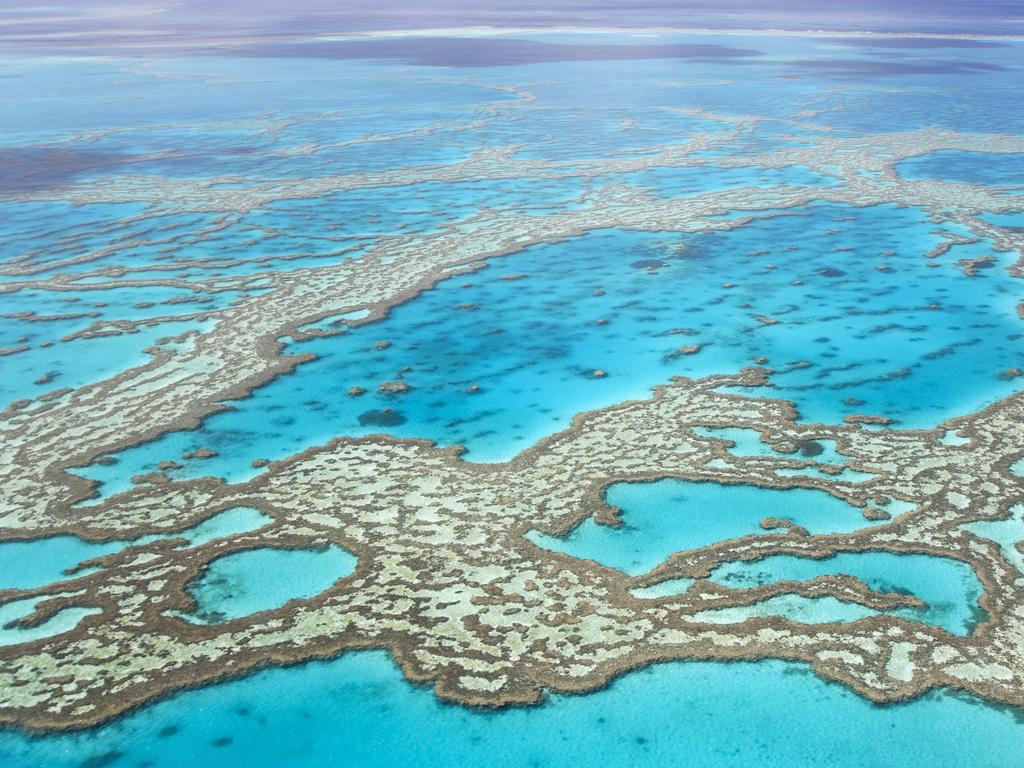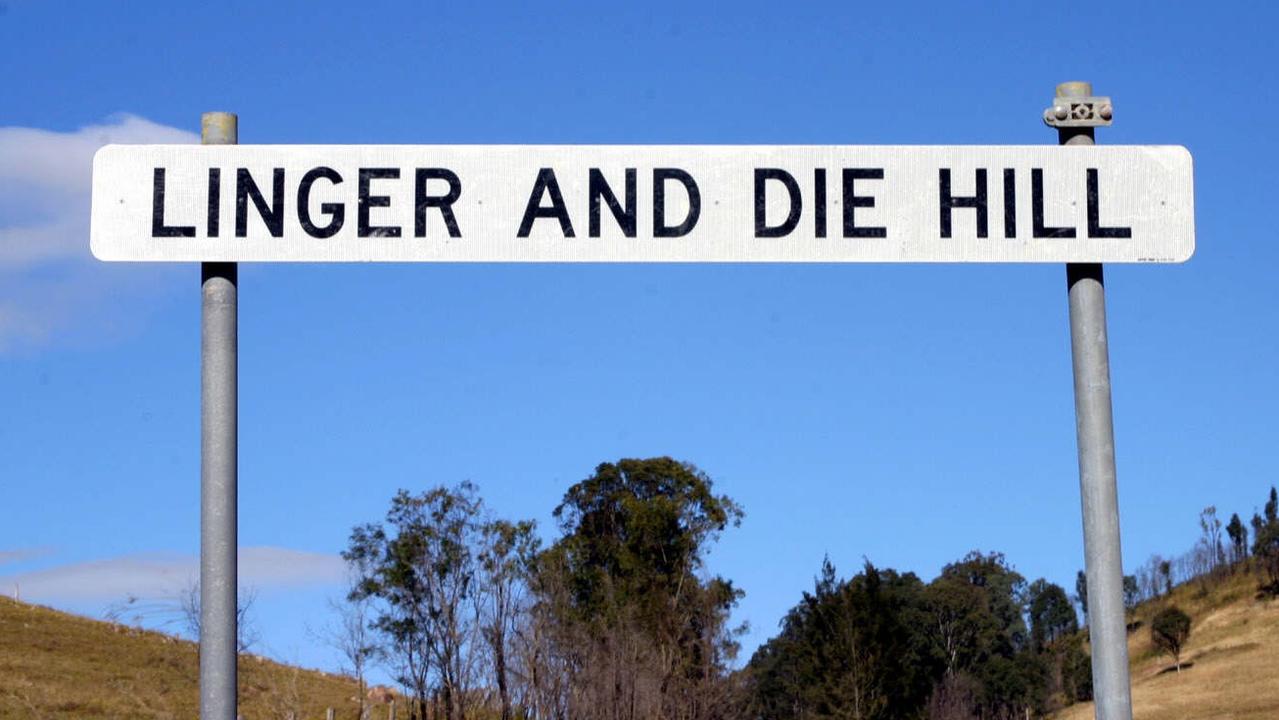China accused of influencing Great Barrier Reef ‘in-danger’ listing
Australia faces an uphill battle to overturn reef’s ‘in-danger’ listing, with a clear majority of World Heritage Committee members signed up to Beijing’s Belt and Road Initiative.
Australia faces an uphill battle to overturn an “in-danger” listing for the Great Barrier Reef at a World Heritage Committee meeting next month, with a clear majority of the body’s members signed up to Beijing’s Belt and Road Initiative.
The Australian government will heavily lobby members of the committee to push back against the draft ruling, arguing a consistent process is needed to deal with all climate-change-affected World Heritage sites. Australian officials said there was “some chance” the recommendation could be reversed at a meeting from July 16.
But they conceded the task would be challenging when 14 of the 21 committee members had joined the BRI financing program, putting them in Beijing’s debt.
Australian officials will target state parties such as Italy, which is facing a potential World Heritage downgrade of Venice, to lobby committee members to overturn the ruling.
They will warn other states with World Heritage sites they, too, could face arbitrary rulings.
Ratifying the decision to declare the reef endangered will require at least 14 votes.
Environment Minister Sussan Ley said it was wrong for UNESCO to single out “the best-managed reef in the world”.
The Australian reported on Tuesday that the government was blindsided by the overnight announcement, with Ms Ley complaining it was a “complete subversion” of normal process.
“The Foreign Minister and I had a late-night meeting with the director-general of UNESCO last night and we made very clear our strong disappointment, even our bewilderment, that our officials have been blindsided in the way they have,” she said, referring to Marise Payne. “Only a week ago, we were reassured that this was not going to occur.”
In recommending the in-danger listing, UNESCO said successive episodes of global warming-induced coral bleaching in 2016, 2017 and 2020 had compounded problems of sediment-laden run-off from the mainland and water quality, leaving no doubt the reef was facing “ascertained danger”.
This was despite record spending of $2.5bn in 2020 by the federal and Queensland governments to protect the natural wonder, as well as stronger state laws to reduce the volume of run-off and land clearing in mainland catchments. Citing the Great Barrier Reef Marine Park Authority’s 2019 Outlook, UNESCO said “the long-term outlook for the ecosystem of the property has further deteriorated from poor to very poor, and the deterioration has been more rapid and widespread than was evident in 2009-14”.
Although Australia had posted “many positive achievements”, stronger and clearer commitments to combat climate change were needed, the UN agency said.
However, it recognised no “state party on its own” could address climate change. While the draft decision was not flagged in advance to the government, it has been more than a decade coming with both Labor and Coalition governments resisting the in-danger declaration that has been on the cards since 2011.
Queensland Tourism Industry Council chief executive Daniel Gschwind said, if the decision was confirmed, it would be devastating for tourism operators reliant on international visitors.
“It will not do us any favours in terms of the reputation of the reef and is a blow to tourism operators who were already down and suffering,” he said.
Boat operators such as Sunlover Reef Cruises – which took out tourists to Moore Reef on Tuesday on its vessel Tropic Sunbird – will be the most vulnerable to a downgraded listing.
Queensland Deputy Premier Steven Miles said that “nobody should underestimate the gravity’’ of the listing on the state’s tourism, predicting the reef would drop off people’s bucket lists if the recommendation was adopted.
In 2015, Mr Miles, as state environment minister, teamed up with his then federal counterpart, Greg Hunt, to lobby the World Heritage Committee not to list the reef as “in danger”.
Mr Miles said the “level of diplomacy” present in 2015 was now lacking under Scott Morrison’s leadership.
“You know, Greg (Hunt), Julie Bishop and I were using the entire DFAT network,’’ he said.
“Only the Morrison government could blame their own ham-fisted diplomacy with China for the delisting of the reef.”

The downgrade would also pave the way for the reef to be stripped from the register of the world’s prize natural attractions unless Australia could prove it was doing more to counter global warming, environmental experts familiar with the UN process said.
“As the draft decision makes clear that climate change is very much a major driver of putting the reef on the in-danger list, corrective measures would have to include a response to climate change and also accelerated action to achieve the water-quality targets that the Australian and Queensland governments have promised the committee,” said Imogen Zethoven, of the Australian Marine Conservation Society.
Richard Leck, the World Wide Fund for Nature’s head of oceans and sustainable development, said global temperature increases must be contained to 1.5C – at the lower end of climate-change projections – to ensure the reef’s survival.
But Liberal senator James Paterson, the chairman of parliament’s intelligence and security committee, said the draft decision appeared to be motivated by “geopolitical considerations”.
“UNESCO has not visited the Great Barrier Reef since 2012,” he said.
“It has not mentioned the Great Barrier Reef being in danger since 2015,” Senator Paterson said. “But all of a sudden, and perhaps not coincidentally, under a chair from China, it is again contemplating listing the Great Barrier Reef.”
Australian officials pointed to UNESCO’s process in relation to Venice which had in-danger downgrades foreshadowed in 2016, 2017 and 2019 but was still awaiting a final decision on its status.
Nepal’s Kathmandu Valley had in-danger listings flagged in 2017 and 2019 but a decision on its classification was yet to be made.
In a letter to UNESCO director-general Audrey Azoulay, Ms Ley said Australia had been consistently told there was no intention to include the reef on the in-danger list and the move was also premature, given UNESCO was yet to settle on an agreed approach to managing the broader impact of climate change.
“In particular, we object to the reef being singled out as an exemplar for what is largely the consequences of a global challenge which no one country can immediately address,” she wrote, adding there was “widespread recovery” and upcoming reporting would show “the reef has the ability to recover after disturbances”.
More Coverage






To join the conversation, please log in. Don't have an account? Register
Join the conversation, you are commenting as Logout